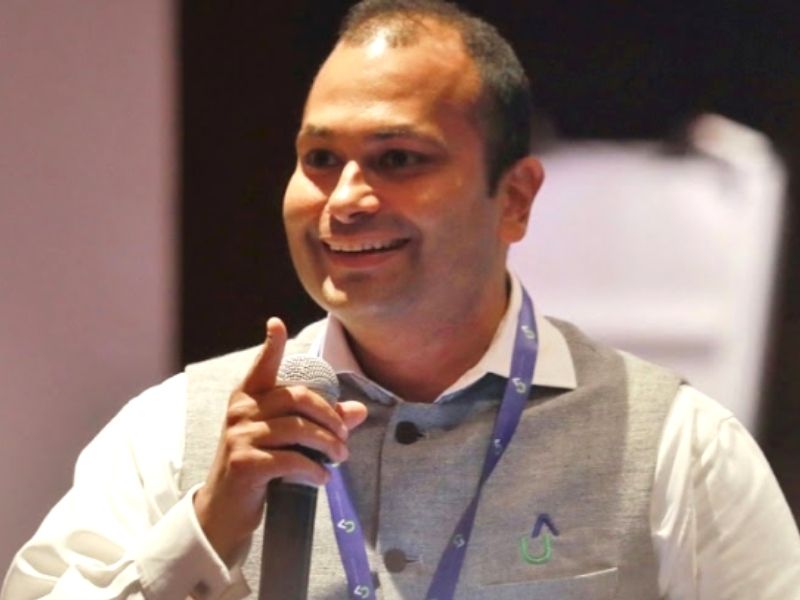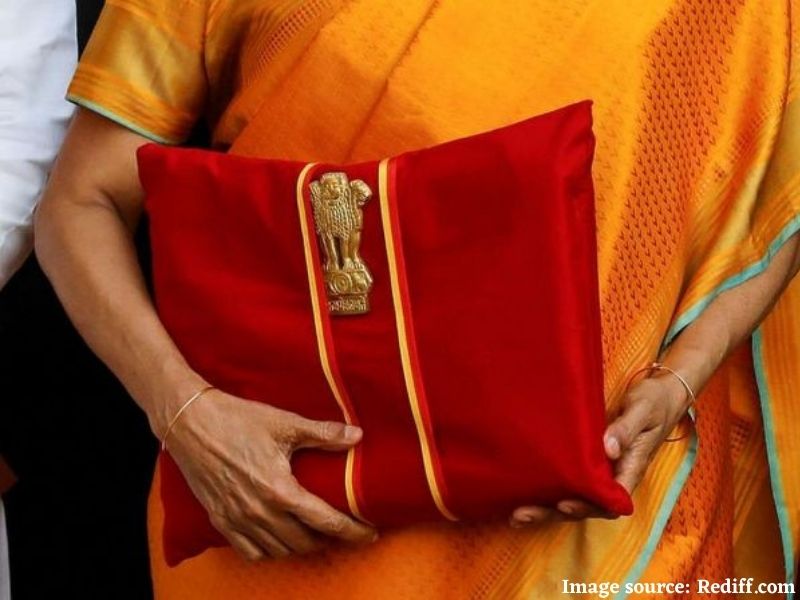The annual Union Budget will be presented on Monday, February 1, 2021 in the Lok Sabha by Finance Minister Nirmala Sitharaman. Prior to that, the Economic Survey 2020-21 will be tabled in the Parliament on Friday, January 29, 2021 – it provides a summary of annual economic development across the country during the financial year. It has been prepared under the guidance of the Chief Economic Advisor (CEA) to the central government. This year, Sitharaman has also launched the “Union Budget Mobile App” for hassle-free access to budget documents.
Here’s what experts from the education industry expect from this year’s Budget:
“After the challenging events of 2020, all eyes are on Budget 2021. Sectors and people most affected by the pandemic must be given priority. This includes low-income groups, contact-intensive industries like hotels, tourism, restaurants, and the MSMEs. These are also the more employment-intensive industries and hence, reviving them would lead to the much-needed momentum in job creation.
In the pandemic year, the budget must also prioritise spending to give a fillip to the economy. One solution which ties up with past budgets is through increased infrastructure spending. This may increase the deficit, but the government could finance it through disinvestment taking advantage of the upward trend the stock market is experiencing. ” – Prof. Amita Vaidya – Director, Sarla Anil Modi School of Economics, SVKM’s NMIMS University
“Budget 2021 is going to be extremely crucial for sectors like education because it would need to be rebooted in its entirety. Covid-19 has forced the embracing of the digital technology education sector at all levels. This is an opportunity in disguise that cannot be missed to build a digital infrastructure that would reach every student of India and fulfill the objective of Right to Education. National Education Policy 2020 needs investment on priority from the budget and financial incentive to the edtech sector including the abolition of GST of 18 percent levied on education sector for next 5 years.” – Nitin Potdar, Corporate Partner, J. Sagar Associates
“Schools & colleges around India will need to revamp their education models to comply with the recently announced National Education Policy 2020. This will require additional government funding to enable this to happen. India spends only 4.6 percent of its total GDP on education, and ranks 62nd in total public expenditure on education per student, according to IMD. Budget 2021 should allocate at least 6 percent of Indian GDP to the education sector, which is  in line with recommendations by Niti Ayog.
in line with recommendations by Niti Ayog.
Additionally, the changes envisaged by NEP 2020 cannot happen only with government funds. Private investment & FDI should be encouraged in mainstream education with an expectation of a reasonable return. The budget should also provide incentives for universities to conduct research & scholarships for student entrepreneurs who wish to create innovative products.” – Dr. Akhil Shahani, Managing Director, Thadomal Shahani Centre for Management, Shahani Group and Ask.Careers
“Pandemic times have shown like never before, the transformative power of edtech on education. For a developing nation like India, with the world’s largest youth population, the leverage provided by technology, for education access and quality, has been increasingly recognised and accepted. However, the prioritisation in the Union Budget has not kept pace. We hope all that will change in the forthcoming budget.
The edtech industry will need higher digital infrastructure and robust knowledge protection framework to build on the in-roads it has already made in Covid times. Education’s expenditure share, which has seen some incremental  increase over the years, needs to now see a substantial jump so that the opportunity for the spread of technology-led education across the length and breadth of India is not lost. As a future superpower, we need to ensure inclusiveness, enhance the standard of education – both of which edtech can ensure.
increase over the years, needs to now see a substantial jump so that the opportunity for the spread of technology-led education across the length and breadth of India is not lost. As a future superpower, we need to ensure inclusiveness, enhance the standard of education – both of which edtech can ensure.
It is the hope of Fliplearn, as I am sure, of the entire edtech industry, that the government will allocate suitable funds in the Union Budget 2021 to assist the edtech sector in building strong digital infrastructure across the country, including the remote areas which will not only help the education sector but will also help India in its bid for digital transformation” – Divya Lal, Founder and Managing Director, Fliplearn
“The pandemic has severely impacted education in our country with over 200 million children losing out a year full of schooling. This situation is even direr in smaller towns and cities in India where affordable private schools have struggled to provide requisite online learning since last year owing to a lack of technology infrastructure, school  fees and teachers who were equipped to teach online.
fees and teachers who were equipped to teach online.
In addition to students and parents, teachers also have been severely impacted as many faced job cuts or mental pressures to train themselves quickly to adopt to online teaching.
In view of these disruptions in the learning process, it is important that some corrective methods through fiscal measures be undertaken in the upcoming general budget.” – Sumeet Mehta, Co-founder & CEO, LEAD School
“While quality education holds the key to inclusive growth in India, the public spending on education is at about 4.6 percent of gross domestic product (GDP) – lower than that of most developing nations. Education in India needs to be recognised as an equalizer – as a crucial instrument that can bridge the socio-economic divide in our country. Income inequality in India stems from the enormous disparity in learning outcomes after completion of education.  And, to address this gap, reallocation of resources from other sectors need to be made and re-routed towards building a level-playing field for all students. Budget 2021 needs to focus on investments towards building a robust system of accountability, checks, and balances to level-up the delivery and quality of higher education. Ensuring equal opportunities for students irrespective of caste, class, gender, and region. And eventually, eliminating the need for quota-based reservations for students in the country.” – Shaheem Rahiman, CEO, Atria University
And, to address this gap, reallocation of resources from other sectors need to be made and re-routed towards building a level-playing field for all students. Budget 2021 needs to focus on investments towards building a robust system of accountability, checks, and balances to level-up the delivery and quality of higher education. Ensuring equal opportunities for students irrespective of caste, class, gender, and region. And eventually, eliminating the need for quota-based reservations for students in the country.” – Shaheem Rahiman, CEO, Atria University
“The upcoming Union Budget 2021-22 is very crucial for the education sector. The government has already announced the ambitious National Education Policy (NEP) in 2020, which emphasises digitalization in education delivery. India is also home to the world’s largest K12 population & therefore investing in the K12 segment is very important, as early childhood education plays a vital role in building the foundation of an individual’s life and also the country. We are hopeful and looking forward to the government to issue the guidelines on the implementation of NEP 2020 and appropriately allocate the budget for the education sector, and especially in the K12 segment.” Rajiv Bansal, Director-Operations, Global Indian International School (GIIS), India
“Tough calls will need to be made by the government to meet their 5 trillion dollar target. A huge push towards infrastructure spending can kick start the economy by putting money in the hands of the masses. Permitting foreign players in sectors such as defense, education, multi-brand retail and real estate may bring in more protests but eventually will lead to foreign investments and shall boost the economy.
For NEP 2020 to flourish the government must consider introducing financial instruments that will help the higher education sector to raise funding to develop diverse faculty that can offer interdisciplinary curriculums. Also, relax the norms on REITs to help private education institutions unlock capital from their rich real estate holdings.
The government will also need to look at easing education loan norms as the year gone by has made meeting ends meet difficult for many families, thereby enhancing the risk of more dropouts from HEIs and thereby adversely impacting the NEP’s target of achieving a GER that exceeds 50 percent.
In my view, India is a controlled economy and has the potential of raising capital from overseas without disrupting our fiscal deficit and without artificial liquidity infusion. We must put this potential to use, now. This can help India emerge as an economic superpower as the world continues to reel under the threat of Covid-19.” – Sanjay Padode, President, Vijaybhoomi University
“As the country recovers from the Covid-19 pandemic, it is hoped that the budget 2021-22 kick-starts the economy while boosting expenditure on education and healthcare infrastructure. In this regard, the government could plan to forego fiscal restraints and increase capital expenditure in these particular sectors. There should be transparency and accountability in every rupee spent on education and ensure equitable distribution of funds. It is expected that the budget should look at boosting private investments and give a fillip to avenues of employment generation. The focus should be on upgrading the basic infrastructure and digitalisation of educational institutions, measures to encourage  student retention, and comprehensive teacher training programmes to remain updated with global learning standards.
student retention, and comprehensive teacher training programmes to remain updated with global learning standards.
Positive learning from the pandemic indicates that there should be a significant allocation of funds to online education, affordable digital devices, and should be complemented with high-speed internet access to the remotest parts of India. The budget should also look into resource building and improve the teacher-student ratio as nearly 250 million students are expected to enroll in schools by 2030 which would need 7.5 million highly trained teachers to address the massive student population.” – Rustom Kerawalla, Founder-Chairperson, VIBGYOR Group of Schools
“National Education Policy (NEP 2020) has already set the pace for enormous skill development for the youth. We are expecting that government will increase the education expenditure in the current education budget. With more focus on the implementation of the new policy, quality and tax-free education and skill development, the reforms will pave ways for more blue-collar jobs. Classroom education has undergone complete change due to emergence of Covid, we expect that Government will put more focus on the usage of digital education in Tier 2,3 cities and envisage avenues to make India as one of the preferred higher education destinations in the world.” – Aakash  Chaudhry, Managing Director, Aakash Educational Services Limited (AESL)
Chaudhry, Managing Director, Aakash Educational Services Limited (AESL)
“Jeff Bezos recently said that the 21st century will belong to India. For this to materialise, India would need to improve its ease of doing business from 63 in the world to be in the top 30. In 2020 India got over $50 billion in FDI inflows but it has the potential to get over $100 billion. This could be a game-changer and given the anti-China wave, it is possible. I am very optimistic about the budget as I am sure that the government will seize the opportunity,” – Nitish Jain, President, SP Jain School of Global Management
“As a special educator, I believe that if there is an allocated investment per child having learning disabilities to meet their academic needs, we will be able to help reduce the alarming rate of children facing this challenge. Curriculum  design and levels of achievement must be conducive to including those with academic potential despite their learning disabilities. The Government of India on its part can also take steps to encourage students who face such issues by enabling a favourable atmosphere for students, their parents as well as educators. If I were to be given a wish list for the upcoming Union Budget, I would want all teaching and medical courses to have in-depth learning dedicated to the different types of learning disabilities, their prognosis and modes of treatment and school access. Further, the Government can encourage more schools across the country to include children with learning disabilities, by offering them subsidies in order to ensure that the students are able to graduate from these schools with higher proficiency enabling them to lead a successful life.” – Piya Marker, Director – Head of School, The Aditya Birla Integrated School( TABIS)
design and levels of achievement must be conducive to including those with academic potential despite their learning disabilities. The Government of India on its part can also take steps to encourage students who face such issues by enabling a favourable atmosphere for students, their parents as well as educators. If I were to be given a wish list for the upcoming Union Budget, I would want all teaching and medical courses to have in-depth learning dedicated to the different types of learning disabilities, their prognosis and modes of treatment and school access. Further, the Government can encourage more schools across the country to include children with learning disabilities, by offering them subsidies in order to ensure that the students are able to graduate from these schools with higher proficiency enabling them to lead a successful life.” – Piya Marker, Director – Head of School, The Aditya Birla Integrated School( TABIS)
“With the entry of National Education Policy 2020, I am hopeful for the budget 2021. It seems like education is finally taking the attention of the central government. With a 40 crore student population, the country needs its focus to enhance the quality of education and financial benefits are a need of the hour for the education system.  Reduced GST Tax slabs for trusts running schools, colleges, Tax Benefits to teachers and working professionals in education section to help pull better talent to institutions, allocation of additional budget for enhancement of government schools, financial benefits to the ed-tech sector and companies are some of the prime benefits, that I will personally hope to see. Talking about other possible happenings in the budget this year, an increase in the percentage of GDP to the education sector and a fund being established to boost government education infrastructure. A personal appeal would be to have government reduced the 85% spending rule on Non-profit to 75% as a 15% corpus fund is not enough to tide through a crisis like that of Covid, which we witnessed last year.” – Swoyan Satyendu, COO, ODM Educational Group
Reduced GST Tax slabs for trusts running schools, colleges, Tax Benefits to teachers and working professionals in education section to help pull better talent to institutions, allocation of additional budget for enhancement of government schools, financial benefits to the ed-tech sector and companies are some of the prime benefits, that I will personally hope to see. Talking about other possible happenings in the budget this year, an increase in the percentage of GDP to the education sector and a fund being established to boost government education infrastructure. A personal appeal would be to have government reduced the 85% spending rule on Non-profit to 75% as a 15% corpus fund is not enough to tide through a crisis like that of Covid, which we witnessed last year.” – Swoyan Satyendu, COO, ODM Educational Group
“Education being the key instrument of social change, progress and upward mobility in India, the government needs to ensure that education gets the attention and funding it richly deserves. There is a need to improve infrastructure facilities in public schools through the setting up of smart classrooms, modern laboratories and libraries which would enhance the quality of learning. We expect the government to improve the quality and scale of education across the country through the National Education Policy (NEP) with more funds for schools at different levels. In the present context of Covid-19, the government must provide support to states for a back-to-school campaign.
With heavy digital penetration presently, the government should emphasize modern and interactive techniques, and equip teachers with new-age teaching tools like conceptual learning methods and regularly update them with the changing scenarios in the education sector. The challenge right now is not just producing students who will get jobs, but students who can thrive in rapidly changing environments. The government should also look into subsidizing loans sought for education and take measures to reduce the cost of these loans.” – Niru Agarwal, Trustee, Greenwood High International School, Bangalore
Also read:
Posted in National, News























